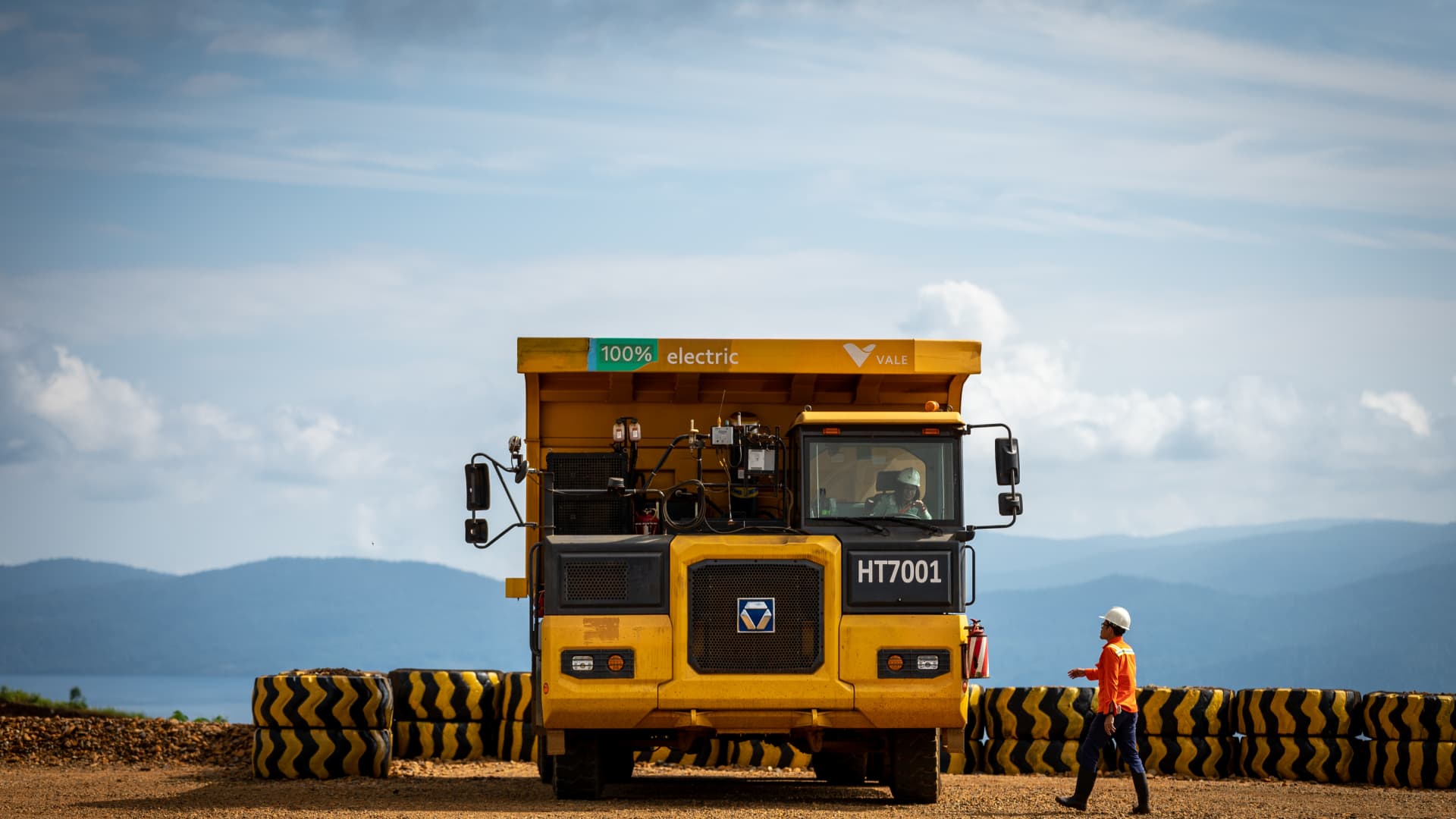Latest Sectors News

Critical mineral mining is important to the green transition, but the mining industry's poor reputation is creating investment barriers. View More
An electric truck at the PT Vale Indonesia mining area. The CXMG type XDR-80-TE truck manufactured in China boasts a hauling capacity of 70 tons. Sopa Images | Lightrocket | Getty Images Mining of critical minerals plays a crucial role in the global green transition, but the broader industry's bad reputation and other challenges present investment barriers, industry experts warn. Critical minerals include metals such as copper, lithium, nickel, cobalt and rare earth elements, and are important components in emerging green technologies such as wind turbines and electric vehicles. Speaking on a panel at Singapore's annual Ecosperity Week, which ended Wednesday, mining industry experts and investors said the growing demand from green tech makes it necessary to increase government support and capital flows into the critical mining sector. "Simply put, we cannot achieve the goals of the Paris Climate Agreement to reduce carbon without more mining, and the use of critical minerals," said Adam Matthews, chair of the Global Investor Commission on Mining 2030, an investor-led initiative aimed at reforming the mining industry to address sustainability risks. watch nowVIDEO2:3202:32Critical mineral mining sees unprecedented growth fueled by clean energy demandThe Exchange Meeting the demand for copper alone over the next decade will require over $200 billion in capital, according to the Royal Bank of Canada. However, the panel said the critical mineral sector has struggled to persuade investors of this vision and the industry faces the threat of falling short of billions of dollars in investments needed to meet future demands. Bad reputation A major barrier to capital and support is the industry's association with disasters and ecological damage, according to Dominic Barton, chairman of Australian mining giant Rio Tinto.Even though many stakeholders agree on the need for more critical mineral mining, "no one wants a mine done in their backyard," said Barton, who is also chairman of LeapFrog Investments.  The industry's spotted history includes disasters such as one of Brazil's deadliest and most environmentally damaging accidents in 2019 when a dam containing mining waste owned by mining company Vale collapsed. It had been the second such accident for the company in about 3 years. "To all of a sudden be seen as a critical resource or a savior is a bit of a stretch," said Barton. "But it's in everyone's interest that we do better at that, because of the increasing gap in the amount of minerals needed." watch nowVIDEO13:2813:28Inside mining giant Rio Tinto's Utah copper mineTech Creating such a shift in narrative will involve improving the relationship between mining companies and local communities, the experts said.An analysis by the International Renewable Energy Agency found that an estimated 54% of critical materials lie near indigenous people's land.In an example of questionable practices, nickel miners tied to Chinese EV battery manufacturers were accused by an environmental group on Tuesday of damaging protected forests in Indonesia's Sulawesi region and endangering the lives and livelihoods of the indigenous Bajau people.In 2020, Rio Tinto triggered a public outcry when it blew up parts of the Juukan Gorge cavesâ a 46,000 year-old Aboriginal sacred site in Western Australia â as part of its plans to extract $135 million worth of iron ore. Barton called the incident, which led to executive and chair exits ahead of his tenure at the company, "deeply embarrassing." Speakers at the Ecosperity conference said it is important for the industry to admit to past faults, increase transparency, and highlight the positive economic impact of critical mineral mining â such as boosting jobs and economic prospects. Reducing environmental impact According to the World Bank, the extraction of critical minerals can have serious environmental consequences in the form of carbon emissions from mining, as well as biodiversity impacts. Many of the same companies that mine critical minerals also mine environmentally damaging fossil fuels like coal. watch nowVIDEO1:3301:33ASEAN's sustainable energy transition cannot happen without massive investmentsSquawk Box Asia Minimizing the environmental impact of the industry, such as the tens of thousands of dams holding mining waste around the world, should be a top priority going forward, the industry observers said. Solving risks concerning biodiversity and water management will require increased research and development spending, as well as better talent to push technological innovation, they added. One area that has seen recent strides and investments has been in the recycling of critical minerals, which cuts down the need of extraction. Government support The mining industry will also need to make better appeals to global governments to attract public funding and support and make the industry more investable, said Scott Clements, partner at Tribeca Capital. While global governments like the U.S. have provided increased funding to downstream projects like the production of lithium batteries, support for activities such as mining minerals like lithium has been lacking, he said. watch nowVIDEO2:4402:44We like the 'lowest cost, highest quality' mining operators: Portfolio managerStreet Signs Asia Additionally, long processes to obtain permits for mining have scared off investors looking for faster returns, the experts pointed out, saying that mines take an average of about 16 years to begin production after discovery. Increasing the efficiency of the process could benefit critical material supplies, given more globally universal regulations and standards are implemented to ensure good practices."Ultimately, its industry, in partnership with investors, local communities, and other stakeholders of government, will ensure we have a model of mining that gets at addressing [the industry's] challenges, whilst meeting demand," said Matthews.Â
